Welcoming a senior dog into your home is a profoundly rewarding experience. These mature companions often come with a wealth of love to give and a calm demeanor, making them wonderful additions to many households. While puppies and younger dogs often grab attention, senior dogs possess a unique charm and a quiet wisdom that can bring immense joy. For those specifically considering adopting from a reputable rescue, understanding what “Villalobos Senior Dogs For Adoption” entails is crucial. This guide will delve into the world of senior dog adoption, focusing on the specific context of Villalobos Rescue Center, and offer insights into why choosing a senior dog, particularly one from such a dedicated organization, is a truly special choice.
Understanding Senior Dog Adoption
Senior dogs are typically defined as those aged seven years or older. By this stage, they have often lived a significant portion of their lives, and may have developed certain characteristics that make them ideal pets. They are generally past the destructive chewing phase, are often already house-trained, and their energy levels are usually more manageable than those of younger dogs. Adopting a senior dog means you are providing a comfortable and loving environment for a dog in its twilight years, giving them the best possible chance for happiness and companionship.
The term “Villalobos senior dogs for adoption” refers to older dogs that are available for adoption through the Villalobos Rescue Center. This center is renowned for its dedication to rescuing and rehoming pit bull-type dogs, often those who have faced difficult pasts, including abuse, neglect, or abandonment. When you look for senior dogs from Villalobos, you are not just adopting a dog; you are offering a second chance to a deserving animal that has likely overcome significant challenges.
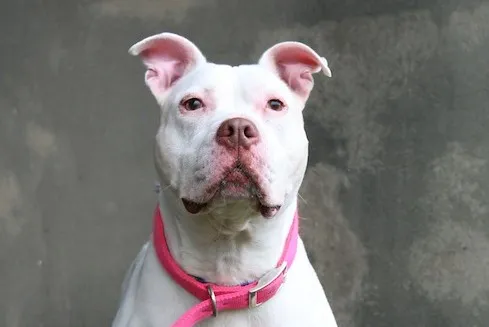
The Unique Appeal of Villalobos Senior Dogs
Villalobos Rescue Center has a reputation for taking in dogs with complex backgrounds, and their senior dogs are no exception. These dogs may have stories of resilience and survival that are both heartbreaking and inspiring. Adopting a senior from Villalobos means you are potentially giving a home to a dog who has experienced hardship but still has an immense capacity for love and loyalty.
These dogs often arrive at the rescue having been surrendered due to owner circumstances, abandonment, or even after being rescued from situations like dog fighting rings. Despite their past, many senior pit bulls from Villalobos exhibit incredible gentleness and a desire for a stable, loving home. Their adoption stories are often deeply moving, showcasing their transformation from survivors to cherished family members.
Benefits of Adopting a Senior Dog from Villalobos
When you consider “Villalobos senior dogs for adoption,” you’re looking at dogs that bring a unique set of advantages:
- Calm Demeanor: Senior dogs are generally past their boisterous puppy and adolescent phases. They tend to be calmer, requiring less intense supervision and activity than younger dogs. This makes them a good fit for individuals or families looking for a more relaxed companion.
- Established Personalities: By the time a dog reaches its senior years, its personality is well-formed. You have a clearer picture of their temperament, likes, and dislikes, which can help in finding a perfect match for your lifestyle.
- Often House-Trained: Many senior dogs are already house-trained and may have basic obedience skills. This can significantly reduce the training efforts required compared to adopting a puppy.
- Deep Gratitude and Love: Senior dogs, especially those from rescue backgrounds like Villalobos, often seem to possess a profound sense of gratitude for a second chance. They can form incredibly strong bonds with their adopters, offering unwavering loyalty and affection.
- Saving a Life: Adopting a senior dog, particularly one from a busy rescue like Villalobos, directly contributes to saving a life and freeing up space for another dog in need.
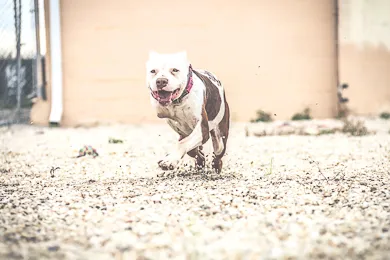
Considerations When Adopting a Senior Dog
While the rewards are immense, adopting any dog, especially a senior, comes with specific considerations. When looking at “Villalobos senior dogs for adoption,” it’s important to be prepared for:
- Potential Health Issues: Older dogs may have age-related health conditions, such as arthritis, dental issues, or reduced vision or hearing. It’s essential to factor in potential veterinary costs and be prepared to manage any health concerns with love and care. Villalobos Rescue Center likely provides initial veterinary care, but ongoing needs are the adopter’s responsibility.
- Dietary Needs: Senior dogs may require specialized diets to support their health. Consulting with a veterinarian about appropriate nutrition is crucial.
- Adaptation Period: While senior dogs can adapt quickly, they may still need a period to adjust to a new environment and routine. Patience and understanding are key.
- Shorter Lifespan: It’s a reality that senior dogs have a shorter remaining lifespan than younger dogs. Adopting a senior dog means being prepared for the emotional aspect of knowing your time together may be limited, but cherishing every moment.
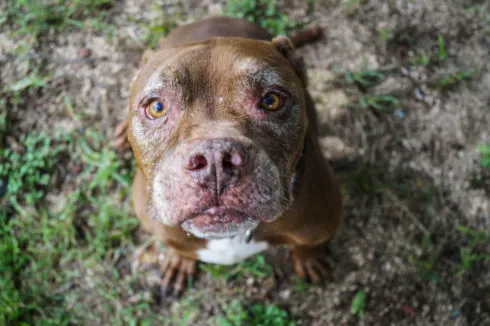
How to Prepare for a Villalobos Senior Dog
If you are considering “Villalobos senior dogs for adoption,” the preparation process should be thorough. Research Villalobos Rescue Center thoroughly. Understand their adoption process, requirements, and any specific guidelines they have for adopting senior dogs.
- Home Preparation: Ensure your home is safe and comfortable for an older dog. This might include providing comfortable bedding, non-slip rugs for slippery floors, and easy access to food and water bowls.
- Veterinary Care: Establish a relationship with a veterinarian before or immediately after adoption. Schedule a check-up to discuss your new dog’s health and any specific needs.
- Patience and Love: The most important preparation is emotional. Be ready to offer patience, understanding, and a lifetime of love to your senior companion.
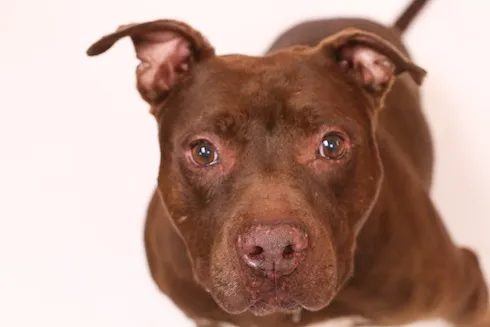
The Profound Impact of Adopting a Senior
Adopting a senior dog from Villalobos is an act of profound kindness. You are providing a loving home to a dog who may have been overlooked or given up on. The gratitude and unwavering affection you receive in return are immeasurable. These dogs have so much love left to give, and by choosing to adopt a senior, you are ensuring their golden years are filled with comfort, joy, and security.
When you search for “Villalobos senior dogs for adoption,” you are opening your heart to a unique and beautiful companionship. These resilient animals deserve a peaceful and loving retirement, and by offering them a home, you are making an incredible difference in their lives. The bond you forge with a senior rescue dog is a testament to the power of compassion and the enduring spirit of these wonderful animals.
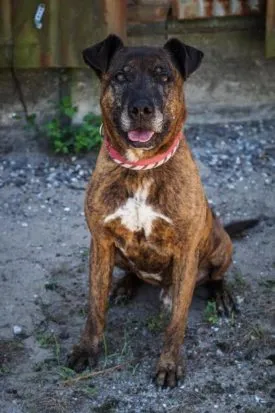
Conclusion: A Rewarding Journey
Choosing to adopt a senior dog from Villalobos Rescue Center is a decision filled with love and purpose. These dogs, though often carrying the weight of past experiences, are capable of offering immense companionship and loyalty. By understanding their needs, preparing your home, and opening your heart, you can provide a deserving senior dog with the happy, comfortable retirement they so richly deserve. The journey of adopting a senior dog is not just about giving a home; it’s about gaining an invaluable friend and experiencing the deep satisfaction of making a profound difference.
Consider the heartfelt stories of dogs like Fidget, Country Girl, Humperdink, Zak, Cherokee, Bastit, Kupono, Munchkin, Krunch, and Junior. Each one represents a unique life with a potential for a beautiful new chapter. By exploring “Villalobos senior dogs for adoption,” you are taking the first step towards a deeply rewarding relationship built on love, resilience, and the promise of a brighter future for a deserving canine companion.
